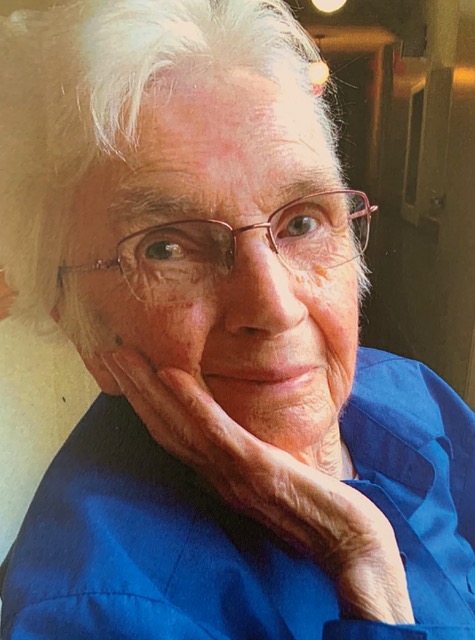1925 - 2019
By: Susan Maloney | Date Added:

Helen Kelley was a bold leader, undaunted by critics and powered by her religious faith and commitment to the promotion and education of women. Her many achievements on behalf of women spanned religious institutions, academia and the public sector. Known for her sharp wit, keen mind and eloquent writing style she brought these talents to bear in each leadership position she held during her life. She was born to William and Frances Kelley in Cedar Rapids, Iowa and had two siblings, Donald and Mary Jean. In her teens the family moved to the west coast, where Helen graduated from Immaculate Heart College in Los Angeles, California. Influenced by IHC’s liberal arts program and the progressive thinking of the Catholic sisters she entered the Sisters of the Immaculate Heart in 1945, and received her Ph.D. in Sociology from the University of St. Louis in 1958, then joined the faculty of Immaculate Heart College. As President of Immaculate Heart College (Los Angeles) from 1963-1977, after having served as Graduate Dean since 1960, she presided over an academic community that was known, for its creative programs in art, music, and theater. She promoted the engagement by faculty and students in domestic and global issues – especially against the Vietnam war. Posters, assemblies, visiting dignitaries – all supported the anti-war sentiment that permeated the campus. Holding to the highest academic standards, Dr. Kelley was a model of truth-telling, disciplined thought, and insightful analysis. She encouraged and supported the work of world renown artist Sister Corita Kent. Forward looking she encouraged the modernization of Catholic religious feasts and urged the college community to "Choose life" despite the climate of fear, racism, and national unrest. Her tenure at the college spanned the years that the Catholic Sisters of the Immaculate Heart transitioned to the ecumenical Immaculate Heart Community. From 1962 to 1965 Pope John XXIII held meetings with all the world’s Catholic bishops to discuss the modernization of the Church. The documents issued from the Second Vatican Council were the foundation for the transformation of the Catholic church life. Specific to Catholic sisters was the 10-year period of experimentation to update the medieval life-style and practices of nuns. Most important was the fact that religious orders of women would control their own renewal process. The Immaculate Heart Sisters of California rapidly embraced this call to modernize and updated the religious rule, decentralized authority, reevaluated their ministries, and introduced new prayer practices. These reforms angered male Church officials who demanded the new statues be rescinded. The sisters would not change their new rule and the hierarchy would not relinquish their demands. In retaliation, the archbishop of Los Angeles fired all the Immaculate Heart Sisters from the Catholic schools. The Vatican did not accept the new rule. In 1970, after months of deliberation the Sisters decided to form a new community not canonically attached to the Catholic Church. Over 300 sisters left their canonically status and became and independent community. Helen Kelley was one of the leaders and a major writer who wrote the new religious rule that would guide the life and spirit of the new ecumenical Immaculate Heart Community. Helen's writing to this day remains a testimony to her deep spirituality, her brilliant intellect, and her fidelity to truth and self-determination. Following her academic career, she was the Deputy Associate Director for Older Americans Volunteer Programs of the federal ACTION program (1977-81) during the Carter administration. She was Education Director of People for the American Way from 1982-85, followed by three years as a consultant to several foundations. Helen’s empowerment of women included direct relief work. She was pivotal in the establishment of a residence in Los Angeles for women and children living in poverty. Surrounded by women in her community, Helen died peacefully at the Immaculate Heart residence in Los Angeles, where she had lived in community after her longtime service to women in the academia and in the public sector.
Share your thoughts on this story with us. Your comments will not be made public.
Email
Copyright ©2016 - Design By Bureau Blank